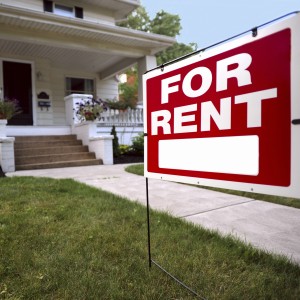"In terms of Metropolitan areas with the highest housing [costs], the list doesn't change much from year to year," said Research Director Megan Bolton.
What has changed is that rental housing has gotten more and more expensive nationwide, said Sheila Crowley, the coalition's president and CEO.
The need for housing affordable for extremely low income people rose from 6.8 million units in 2010 to 7.1 million in 2011, according to the report.
"There is a significant difference between what people need to earn in order to afford housing and what they do earn."
Government cutbacks are making the situation worse. Sequestration, a set of across-the-board cuts imposed the federal government this year, is already hurting efforts to help people afford homes, said Crowley.
"HUD has sent out letters to governors saying what their budget cuts will be for the current fiscal year," said Crowley.
The cuts are particularly affecting vouchers used to subsidize housing of very low income people. Not only have housing authorities stopped issuing new vouchers, they have rescinded some for people who have been looking for a place to live.
"So you have been on the waiting list for years, finally your name comes up. You’re out there looking for a place to live and suddenly they rescind your voucher," she said.
Barbara Poppe, executive director of the U.S. Interagency Council on Homelessness, agreed that the cuts could worsen the national housing shortage. "These sequester cuts threaten to stop our progress and threaten to send us backwards," she said. "As many as 100,000 families could lose access to shelters."
The report gives detailed numbers for states, cities and counties.
Some of the most striking statistics:
- To rent a one-bedroom apartment in the Silicon Valley, three people would have to work full time earning the state minimum wage ($8 per hour). (On Monday, the City of San Jose raised the minimum wage from $9 to $10 per hour.)
- In the Oakland-Fremont area, you would need 2.1 people working full time at $8 an hour to afford a studio apartment.
- Even in Merced, a California community with a much less expensive reputation than the Bay Area, you would still need 1.2 people working full time at $8 an hour to afford a studio apartment.
The agency made its calculations based on the fair market rate for rental units provided by the Housing and Urban Development department and an estimate that you can spend 30 percent of your income before sacrificing other necessities such as food and healthcare.
In order to keep roofs over their heads, very low income people are both sacrificing other necessities and cramming more people into the housing units they occupy, said Bolton.
The coalition didn't just identify the problem, it also proposed solutions. Most notably, it would "modify" the mortgage interest tax deduction in such a way that money could be saved to subsidize housing for people with very low incomes.
